
Why Are Films So Poor Nowadays? - MovieMaker Magazine
I used to leave theaters with that exhilarating buzz coursing through my body. The plot lingered in my mind, visuals swirling around in my head, and an immediate urge to discuss what I had just experienced. Now, I find myself questioning whether I should have stayed home to watch Shrek 2 again—was it the seventeenth or eighteenth time?
Something feels amiss. Many recent films are not just forgettable; they are excruciatingly bland. It’s akin to chewing wet cardboard while surrounded by sound.
And no, this isn't merely nostalgia. There is a clear decline in creative ambition. Hollywood is inundating us with empty spectacles, recycled intellectual properties, and scripts that feel like studio notes masquerading as screenplays. So what has changed? And why is this happening now?
Let’s closely examine the landscape.
They Keep Reviving the Same Old Stories
There’s a stark contrast between paying tribute to a classic and resurrecting it, stuffing it with CGI, and showing it off in a virtual wasteland. Reboots used to come with intention. Now, they appear as obligatory updates.
Take The Matrix Resurrections (2021), which aimed to outsmart the very notion of sequels while still being one. The action was lethargic, and the commentary felt worn out. Rather than reinventing the franchise, it went around in circles, caught between earnestness and self-parody.
Disney’s live-action remakes also fell into this uncanny valley. Pinocchio (2022) and Peter Pan & Wendy (2023) may have looked polished, but they felt emotionally empty. They served up nostalgia without any real substance.
The decline in the quality of films today largely stems from studios' aversion to risk. Instead of backing original scripts or visionary creators, they opt to recycle franchises and lean on trend analysis. Consequently, the industry is driven by algorithms rather than audiences, producing content that feels more like a product than a narrative.
Studios Prioritize Franchises Over Individual Films
A major issue today is that nothing seems to feel complete. Films often don’t conclude; they just stall or set the stage for future projects, resembling glorified trailers.
Ant-Man and the Wasp: Quantumania (2023) was advertised as the beginning of something significant, yet it turned out to be two hours of setup with no resolution, no momentum—just a series of scenes filled with swirling effects and exposition.
One frustrated viewer summed it up on Reddit: “Phase 5 feels like post-credit scenes pretending to be actual movies.” The gap between storytelling and studio strategy has never felt narrower.
They Forget the Essentials of Effective Comedy
If any genre should allow for freedom from formula, it would be comedy. Unfortunately, it has suffered the most.
Consider The House (2017), featuring Will Ferrell and Amy Poehler as desperate parents opening an illegal casino to fund their daughter’s education. The concept had promise, but the humor fell flat, and the energy was strangely muted. It aspired to be a suburban Ocean’s Eleven but barely managed to hit sitcom rerun status.
What made the disappointment more exasperating was how far it strayed from what casino storytelling could entail. The tone lacked intensity, the stakes seemed unreal, and the setting was underutilized. Even casual players familiar with Casino Seeker know that engaging casino experiences rely on drama, risk, and unpredictability—all elements this script overlooked. It felt as though the story was constructed around the word “casino” rather than the actual world it represented.
Visuals Drown Out Scripts
Contemporary blockbusters are undoubtedly stunning; each frame gleams with meticulousness. Yet, despite the substantial investment in CGI, choreography, and color grading, little is being devoted to genuine storytelling. Thus, spectacle has taken center stage while the narrative has been relegated to an afterthought.
Many recent films resemble elongated trailers, cut for impact rather than coherence. Scenes are pieced together around flashy set pieces, and dialogue often seems like filler aimed at connecting explosive moments. Moonfall (2022) exemplifies this, with its collapsing cities, rogue AI moons, and overwhelming visual effects, yet almost nothing happening on screen felt narratively or emotionally coherent.
Even well-known franchises are succumbing to this trap. Doctor Strange in the Multiverse of Madness (2022) had the potential to delve into infinite realities, but mainly used that rich material for visual shock instead of narrative depth. At some point, a kaleidoscope of cities loses its meaning if the characters remain emotionally stagnant.
This issue runs deeper than mere “poor writing.” It reflects a shift in studio priorities toward marketability over originality. It’s easier to sell a moment in a trailer than to market nuance or rich character development. However, when everything is cranked up to the maximum visual intensity, nothing stands out—and eventually, even explosions begin to feel muted.
Writing Seems to Have Been Over-Edited
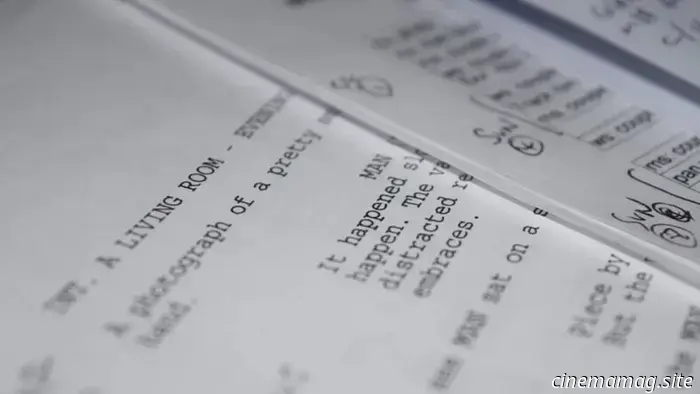
Other articles
 The Top 5 Film Twists of All Time
The Top 5 Film Twists of All Time
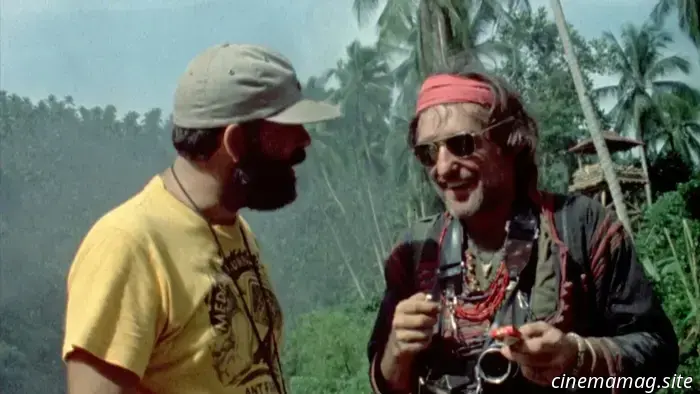 4K Restoration Trailer for Hearts of Darkness: A Filmmaker’s Apocalypse Investigates the Turbulent Production of Francis Ford Coppola’s War Masterpiece
Just a week ago, we learned that Mike Figgis' documentary Megadoc, which delves into the development of Francis Ford Coppola's long-anticipated passion project Megalopolis, is set to hit theaters. But before that, one of the most remarkable portrayals of filmmaking will be released in theaters across the U.S. and U.K. It features stunning footage from Coppola's late wife.
4K Restoration Trailer for Hearts of Darkness: A Filmmaker’s Apocalypse Investigates the Turbulent Production of Francis Ford Coppola’s War Masterpiece
Just a week ago, we learned that Mike Figgis' documentary Megadoc, which delves into the development of Francis Ford Coppola's long-anticipated passion project Megalopolis, is set to hit theaters. But before that, one of the most remarkable portrayals of filmmaking will be released in theaters across the U.S. and U.K. It features stunning footage from Coppola's late wife.
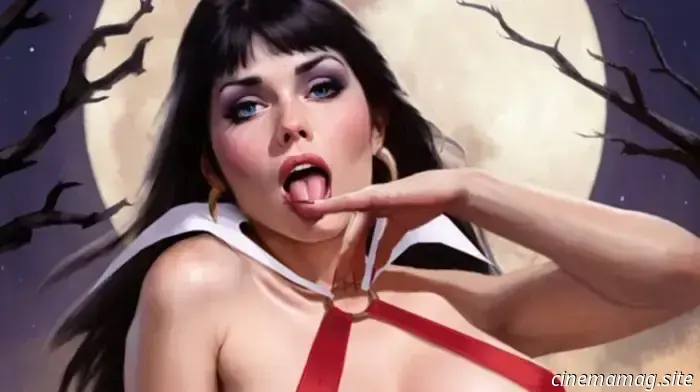 Vampirella #2 - Sneak Peek of the Comic Book
Dynamite Entertainment's latest Vampirella series is set to release its second issue this Wednesday, and you can view the official preview below. Struggling to handle the emotional turmoil from her late-onset postpartum depression, Vampirella starts to sink into a dark psychosis, obsessively imagining that the best future for her baby son might be [...]
Vampirella #2 - Sneak Peek of the Comic Book
Dynamite Entertainment's latest Vampirella series is set to release its second issue this Wednesday, and you can view the official preview below. Struggling to handle the emotional turmoil from her late-onset postpartum depression, Vampirella starts to sink into a dark psychosis, obsessively imagining that the best future for her baby son might be [...]
 We Developed Stephanie Stevens Using the 666 Method: $6K, 6 Days, 6 Individuals - MovieMaker Magazine
Kelsey Ann Wacker and Nathan Simpson are the creators and leads of Stephanie Stevens — a movie centered around an awkward conversation during a walk between a comedian contemplating suicide and
We Developed Stephanie Stevens Using the 666 Method: $6K, 6 Days, 6 Individuals - MovieMaker Magazine
Kelsey Ann Wacker and Nathan Simpson are the creators and leads of Stephanie Stevens — a movie centered around an awkward conversation during a walk between a comedian contemplating suicide and
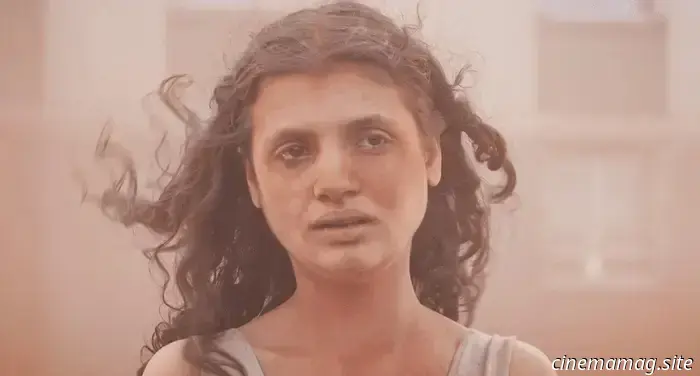 Julia Ducournau has returned with a teaser trailer for her new film, Alpha.
If you recall the last time Julia Ducournau released a film, you know to expect something exceptional with Alpha. The director known for Raw and Titane, which won the Palme d’Or at Cannes, is back, and this new intense cinematic experience is quickly gaining attention. Alpha recently premiered worldwide...
Julia Ducournau has returned with a teaser trailer for her new film, Alpha.
If you recall the last time Julia Ducournau released a film, you know to expect something exceptional with Alpha. The director known for Raw and Titane, which won the Palme d’Or at Cannes, is back, and this new intense cinematic experience is quickly gaining attention. Alpha recently premiered worldwide...
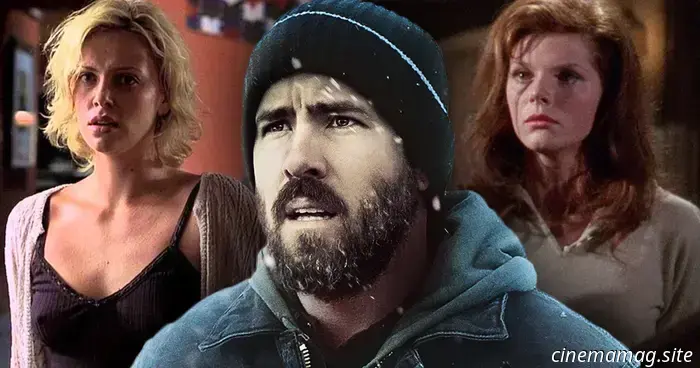 6 Kidnapping Thrillers You Might Have Overlooked
Casey Chong introduces six kidnapping thrillers that might not be on your radar… Kidnapping-themed thrillers have intrigued audiences for years, with numerous noteworthy films to suggest. For example, in the 1980s, titles such as Frantic featuring Harrison Ford and George Sluizer’s The Vanishing stand out, while the 1990s also …
6 Kidnapping Thrillers You Might Have Overlooked
Casey Chong introduces six kidnapping thrillers that might not be on your radar… Kidnapping-themed thrillers have intrigued audiences for years, with numerous noteworthy films to suggest. For example, in the 1980s, titles such as Frantic featuring Harrison Ford and George Sluizer’s The Vanishing stand out, while the 1990s also …
Why Are Films So Poor Nowadays? - MovieMaker Magazine
Something feels wrong. Many recent films aren’t simply forgettable; they are strikingly dull. It’s akin to gnawing on soggy cardboard with
